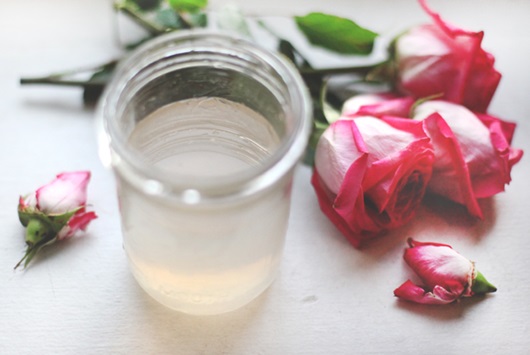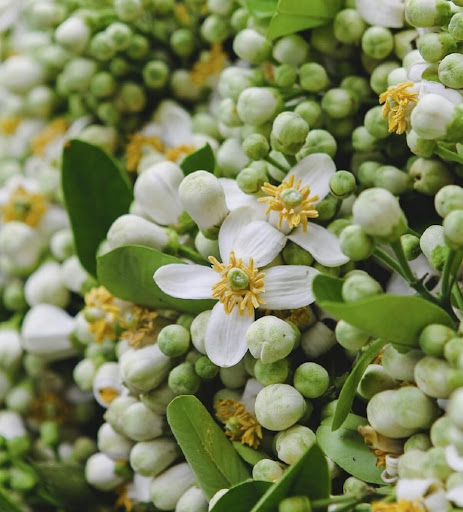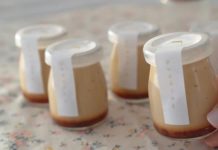Benefits of Floral Hydrosols
Hydrosols are the condensed water solutions resulting from the steam distillation process of fresh flowers. Unlike essential oils, which are concentrated oils resulting from the distillation process, hydrosols are the watery byproducts of the distillation process. Pure, natural floral hydrosols are free of any additives such as alcohol, perfumes, and preservatives, making them safe for skin use.
Hydrosols also contain a small amount of organic acids, flavonoids, polysaccharides, and other compounds, as well as trace amounts of essential oil constituents, which contribute to their various skincare benefits. Their aromas are derived from the pure, natural fragrances of the botanicals used, unlike the synthetic scents of commercial fragrances.
Rose Hydrosol
Rose hydrosol acts as a humectant, drawing moisture into the skin and promoting hydration. It helps to minimize the appearance of pores, restore the skin’s pH balance, and reduce the appearance of fine lines and wrinkles. Its antioxidant properties are also beneficial in warding off future signs of aging.

Its antioxidant properties are also beneficial in warding off future signs of aging.
Jasmine Hydrosol
When used as a daily hydrating toner, jasmine hydrosol helps to brighten the skin, promoting capillary circulation to give the skin a rosy glow, while also combating the damaging effects of free radicals on the skin, thereby reducing signs of aging like wrinkles and dullness.
In addition, the white flower water is slightly cooling, helping to reduce inflammation from acne while also combating aging and moisturizing the skin.
Grapefruit Blossom Hydrosol
Grapefruit blossom has a light, refreshing scent, and the pH level of grapefruit blossom hydrosol is close to that of the skin, making it gentle and non-irritating, suitable for moisturizing sensitive skin. Grapefruit blossom hydrosol contains 35.98% esters and has a large number of conjugated double bond and carbon-oxygen double bond structures, all of which have good UV absorption capacity.

Grapefruit blossom hydrosol also helps to eliminate free radicals, helping to combat skin aging.
Soak paper masks in an adequate amount of hydrosol, then apply the soaked mask for 20 minutes to experience noticeably brighter, more hydrated skin. Grapefruit blossom hydrosol also helps to eliminate free radicals, helping to combat skin aging.
Sunburned skin may also benefit from the use of grapefruit blossom hydrosol as an after-sun treatment for skin replenishment, soothing, and recovery.
Rose hydrosol acts as a humectant, attracting moisture to the skin and promoting hydration. It helps minimize pores, balance the skin’s pH, and reduce fine lines and wrinkles. The antioxidant properties of rose hydrosol also help prevent future signs of aging.
Jasmine hydrosol, when used as a daily hydrating toner, brightens the skin and improves capillary circulation, giving a rosy glow. It also combats free radical damage, reducing wrinkles and dullness. The cooling effect of jasmine hydrosol helps reduce acne inflammation and provides anti-aging and moisturizing benefits.
Grapefruit blossom hydrosol has a refreshing scent and a pH level similar to that of the skin, making it gentle and non-irritating. It is especially beneficial for sensitive skin hydration. The presence of esters and conjugated double bond structures in grapefruit blossom hydrosol provides good UV absorption capacity. It also helps eliminate free radicals, combating skin aging. Additionally, it can be used as an after-sun treatment to soothe and replenish sunburned skin.
































